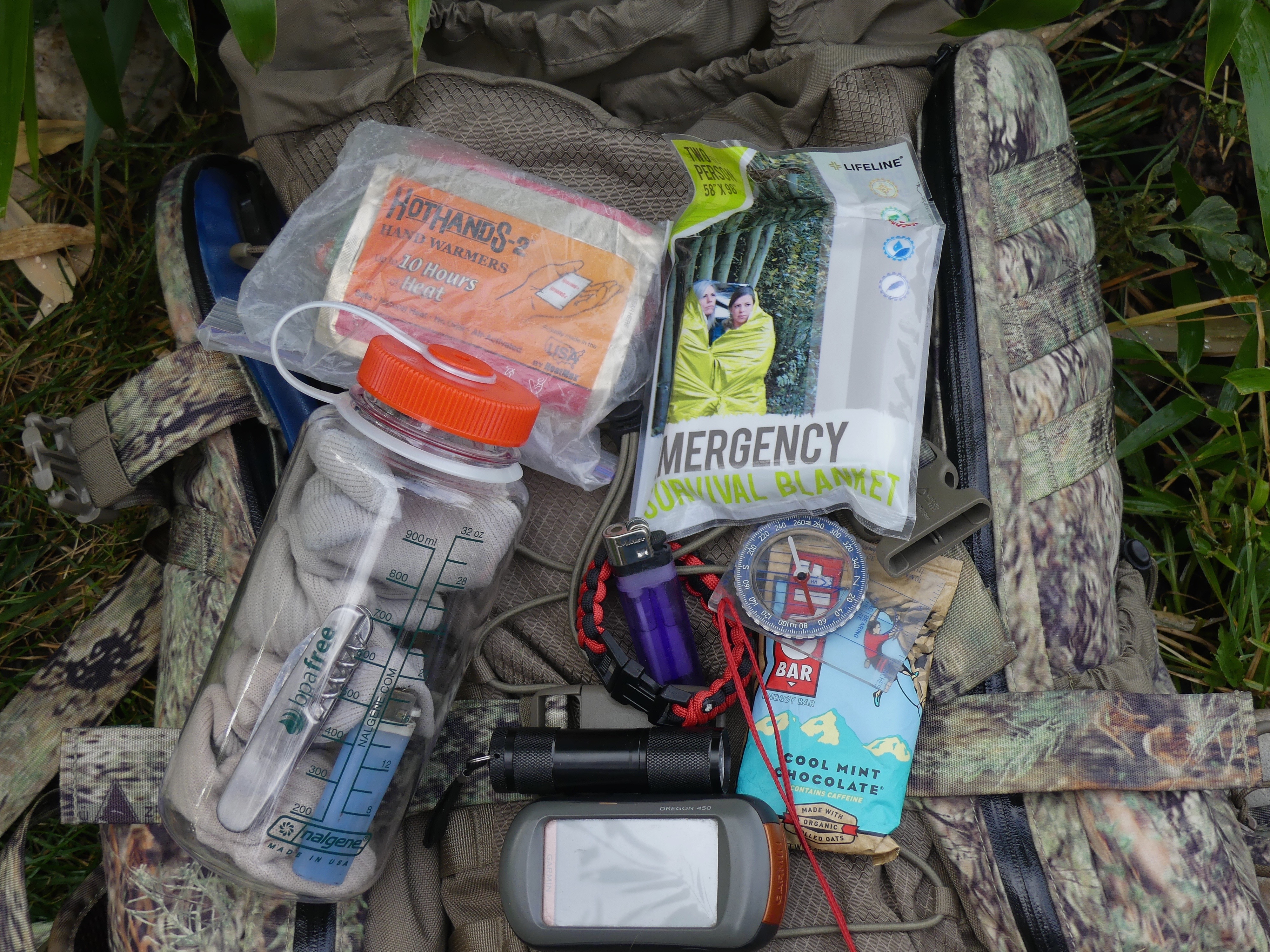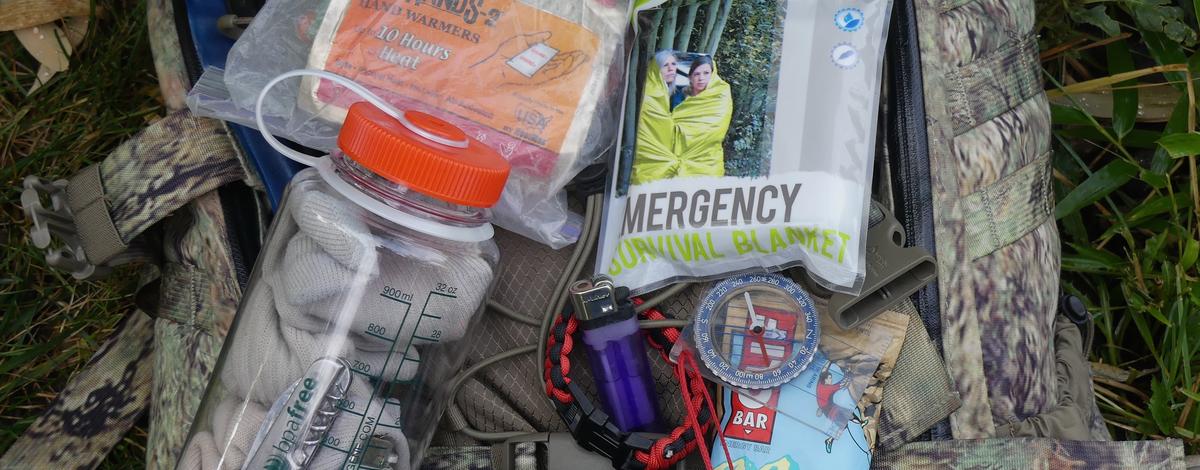As hunters, we’ve been told for years we should carry emergency gear, and it’s good advice. A lot can happen in the woods during hunting season, from getting lost, to being injured, to spending an unexpected night outdoors, or having to endure a nasty storm.
But let’s face it, if you don’t have an emergency, that emergency gear is just dead weight that’s taking up space. What if you could use it for more than emergencies?
Not only can you, you should because there are lots of other uses for emergency gear besides catastrophes, so don’t hesitate to use them during your hunting trips and other times when you’re outdoors. But do it within reason, and make sure you resupply items after you use them.

Here’s some ways to get double duty out of your gear.
Lighters: They’re cheap, so carry several of them. It’s good to have one in your pocket at all times in case you get separated from your pack, and have spares in your vehicle, or ATV. You will often need a lighter to start a campfire, or light a stove or lantern. You can also start a quick fire to warm up, or heat a meal while you’re in the field. Just do it safely and put the fire completely out afterward.
Fire starter: Military surplus trioxane bars are great for starting a campfire, and you can also heat water with them in the field by setting a small, metal pot or mug on top of one. They come in a three-pack for about $5 at military surplus stores and online, and they’re packaged in a tough, waterproof, foil wrapper. There are many other commercial fire starters available that will serve similar double duty. Buy more than you think you’ll need and you will quickly discover how handy they are.
Compass: Even if you own and use a GPS, it’s still a good idea to carry a compass and use it as back up and in addition to your GPS. Take a glance at the compass at the start of your hunt to orient yourself to landmarks so you can reference them on your return trip. A GPS unit is handy, but it’s electronic and requires batteries, which means it can fail. Ditto for a cell phone. A compass is more reliable, but you have to use it.
Space blanket: Hopefully, you never have to use one for an emergency, but they’re also handy to lay meat or quarters on to keep them clean when you’re butchering an animal in the field. A word of caution: don’t wrap meat in them for transport. Space blankets are designed to retain heat, and you’re trying to cool the meat. Don't be afraid to break one out during nasty weather, even if it's not an emergency. Staying dry and warm is always better than being wet and miserable, even if you're not in immediate danger.
Signal whistle: They’re inexpensive, lightweight and don’t take up much space. A couple quick blasts will quickly get your hunting partner’s attention, and the sound carries farther than shouting. Yes, they will alert game, too, but the animals will probably be more curious than spooked by the sound of a whistle.
Wide-mouth, plastic water bottle: Obviously you can fill it with water, but an empty bottle can also be used to stash other items to keep them dry and safe, such as food or electronics like cell phones or GPS. You can also fill the bottle from any water source to clean an animal, wash your hands, or knives, when you’re done butchering and quartering. That way, you won’t potentially contaminate a container used for drinking water.
Base layer and socks: It’s easy to get damp and chilled when you’re hunting because you’re likely working up a sweat in all types of weather. Changing into dry base layers can make a huge difference for warmth and comfort. You can store them in a waterproof bag, which can also be used to carry water, or pack out a heart and liver without getting the interior of your pack bloody.
Lightweight rain jacket: Many hunters shy away from fully waterproof jackets in favor of water-resistant soft shells that breathe better so they don’t get sweaty and clammy. But a prolonged rainstorm or snowstorm will eventually soak through a soft shell, so carry a lightweight raincoat as a last defense against heavy rain or snow. It might only get used a few times a season, but if you have to wait out a prolonged storm, it will keep you dryer and warmer, which is critical to prevent hypothermia.
Parachute cord: A parachute cord bracelet hooked to your pack is an easy way to ensure you always have it handy, and it isn’t constantly tangling with other things. Cord comes in handy for a variety of things, including hanging quarters, tying up a tarp or space blanket for shelter, or making simple repairs to broken straps or boot laces (not to mention securing your tag to an animal).
Instant soup, hot beverages: Hot soup, hot chocolate, tea and instant coffee can warm you up and can provide an energy boost. Hunting can be a mental challenge as much as a physical one, and a warm drink and a shot of caffeine can give you a nice boost.
High-energy food: There are many energy bars and similar calorie-dense foods available that you can carry a lot of calories without much weight or bulk. Carry a variety of them for snacks and keep others stashed for emergencies. Hint: Don’t feel guilty about making it chocolate or other high-calorie candy. Many endurance athletes eat gummy bears to keep them going.

